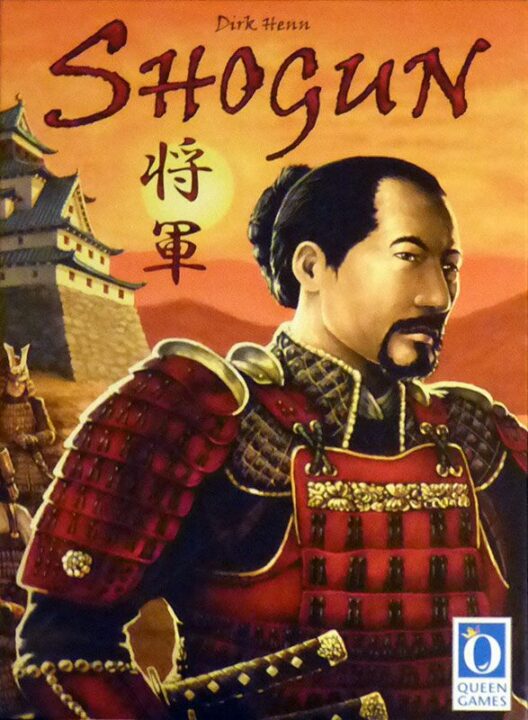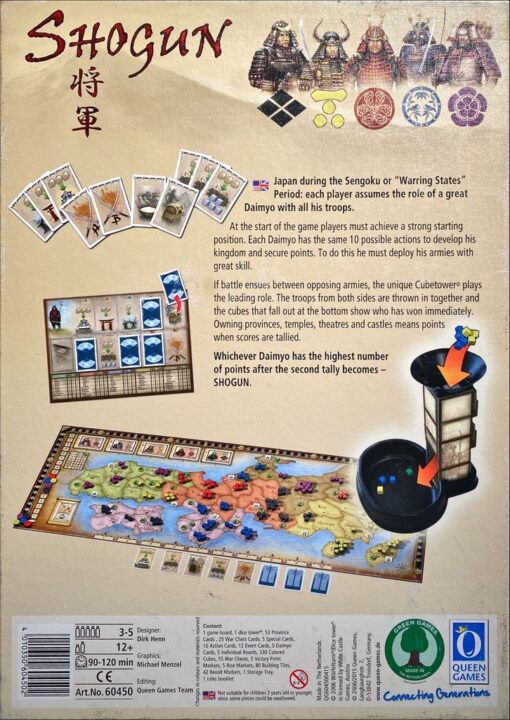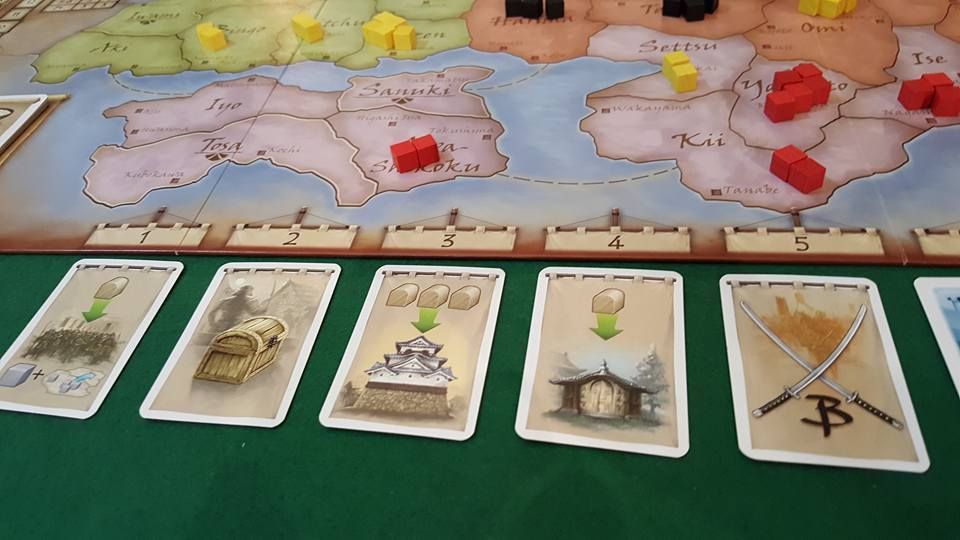Let me save you from another family game night disaster. I’ve wrestled, schemed, and plotted my way through a bunch of board games, but this review tackles one that had my friends shouting and plotting revenge—usually in the same round! Whether you’re a die-hard strategist or someone who just loves cardboard chaos, read on to see if this game earns a spot on your table… or ends up gathering dust next to that copy of Monopoly you secretly hate.
How It Plays
Setting Up
First, drop your cubes in the cube tower, just for fun. Each player grabs their colored army, tokens, and that handy player board. Lay out the map board and randomly hand out provinces. Place your buildings and soldiers in those starting spots. Shuffle the cards, lay out the action boards, and set up the round tracker. Make sure no one hides extra armies up their sleeves (looking at you, Greg).
Gameplay
On your turn, secretly pick your actions for each province—stuff like moving troops, collecting rice, or building castles. Then, reveal and carry out actions in order. Battles? Those happen in the cube tower—pop the cubes in and see what comes out! You’ll have to plan ahead because you can’t do everything at once. Watch out for sneaky attacks and rice shortages, both of which can ruin your day faster than a spilled cup of tea.
Winning the Game
After eight rounds, count up your points for provinces and castles. Survive the winter (seriously, feed your people), and whoever has the most points is the new Shogun! Bask in your victory, rub it in, then start planning your comeback for next game (trust me, you’ll need it).
Want to know more? Read our extensive strategy guide for Shogun.
Is Shogun a Fair Fight? Examining Game Balance and Fairness
Let me tell you about the time my buddy Dave nearly flipped the table over a rice shortage in Shogun. If you’ve played, you know this game isn’t about who can paint the prettiest mini. It’s about conquering Japan—and, more importantly, outsmarting your friends. So, is it fair? Is it balanced? Let’s talk.
Unlike some games where one bad turn means you’re counting sheep for two hours, Shogun actually gives you a fighting chance every round. The game hands out resources, armies, and even misfortune with a careful touch. I never once felt the game had it out for me. We all started on equal footing, though Dave’s banter would make you think otherwise. The cube tower combat system is wild, but not so random that you want to throw it in the neighbor’s pool. What makes Shogun stand out is planning—if you mess up, it’s probably your fault, not some bad dice karma.
I do have one beef: the player order. If you’re last, sometimes you end up cleaning up everyone else’s mess. Some turns, that stings. Also, the region cards can sometimes box you in and if you fall behind, climbing back isn’t always easy. But compared to many area-control games, Shogun gives you tools to bounce back—or at least make Dave sweat.
If you’re tired of games that feel like a one-sided food fight, Shogun’s balance will keep you in the running right to the end. Next, let’s see how much luck stirs this pot of samurai stew (spoilers: it’s not just Dave’s bad fortune).
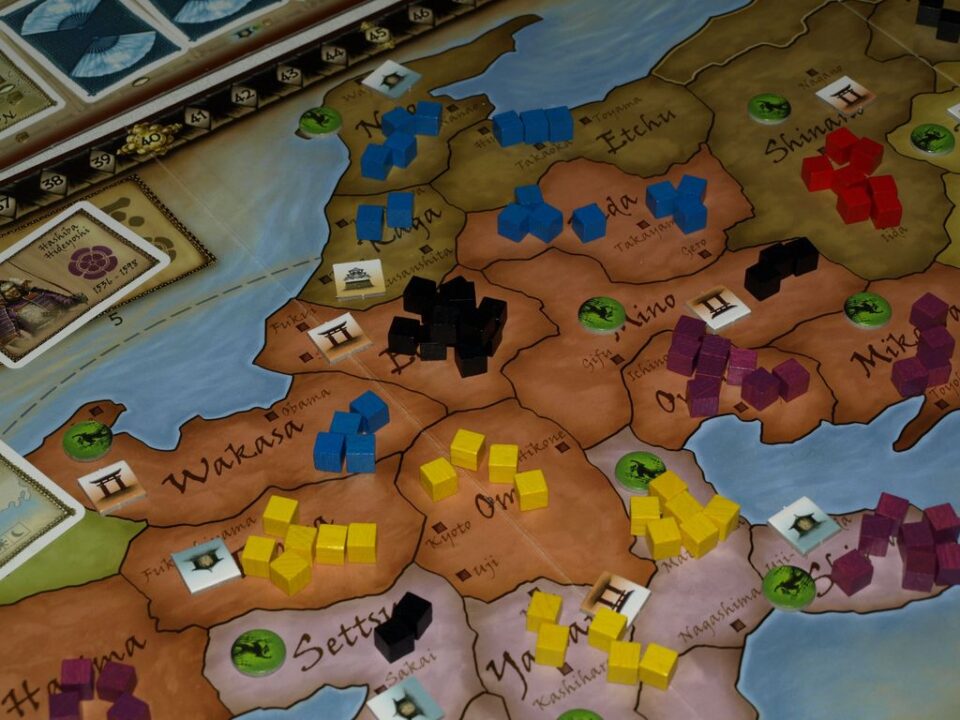
Luck vs. Strategy in Shogun: Who’s Really Calling the Shots?
Let’s get real for a second: some board games are about as predictable as a chicken in a windstorm. Not Shogun, though. This game is a big ol’ love letter to planners and schemers everywhere. Yes, there’s a famous cube tower that spits cubes out at random, and sometimes it feels like it’s holding a grudge. But most of your fate is in your own hands.
I’ve watched my buddy Dave try to blame the tower for his downfall, but the real culprit was his dodgy region picks. Shogun rewards brains, not just blind luck. You’ve got to outthink your friends, guess their moves, and double-bluff like you’re playing 4D chess (or at least pretending to). Decisions matter every round. You decide what to build, where to march, and when to pick a fight. All of it matters way more than those sneaky cubes. Every success (or embarrassing failure) reflects your choices more than a lucky roll.
I admit, the cube tower can stir up some surprise moments. Every now and then, a hidden cube tumbles out and everything goes sideways. I once cheered so loud when a lucky tower drop saved me that my dog left the room. But most of the time, if you win in Shogun, you earned it. If you lose, well, you probably deserved that too (sorry, Dave).
So, Shogun is more about smarts than luck, just how we like it. Now, if you’re curious about all those fancy bits and pieces—brace yourself, because in the next section I’ll spill the beans on Shogun’s component quality and board design like it’s hot board game gossip.
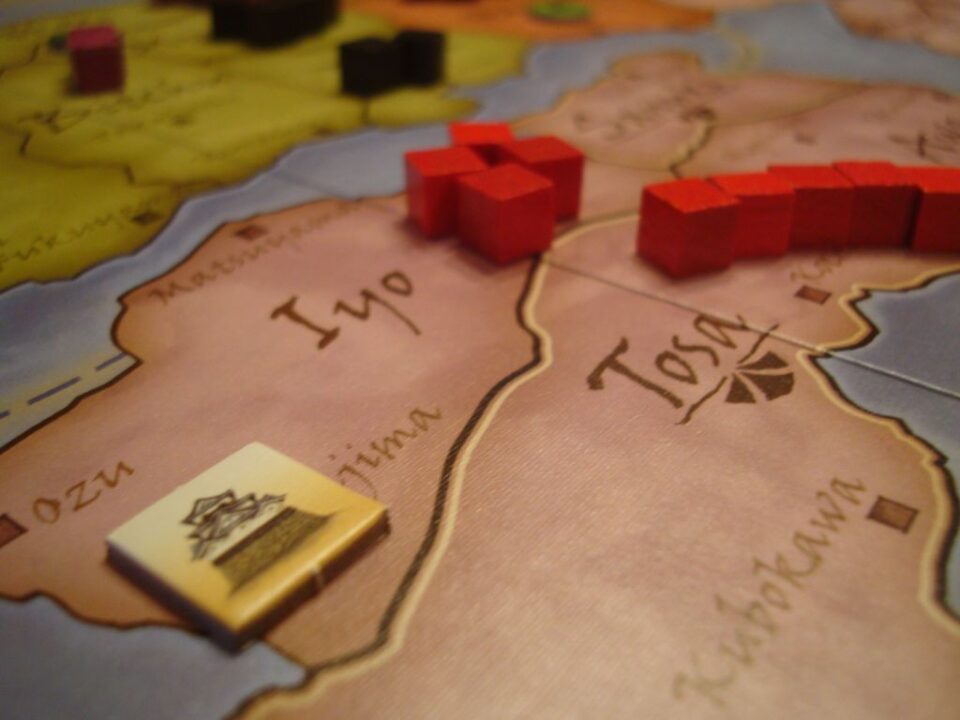
Shogun: A Feast for the Eyes or a Flimsy Feast?
I’ll just say it; Shogun doesn’t cheap out on looks. First time I opened that box, I nearly cried, and it wasn’t because I spilled my drink. The board is gorgeous. It’s got that feudal Japan vibe, complete with regions that clearly stand apart from each other. Even my friend Steve, who once mistook Poland for a potato, found it easy to spot his territories. The board sits big and proud on the table, giving you plenty of room to plan your sneaky moves.
The pieces are neat too. You get a ton of painted cubes in different colors. They feel solid and not like the cheap imitations I once found rattling around in a bargain bin. There are little cardboard chits for rice and gold. They’ve held up pretty well after a dozen play sessions, despite Carl’s tendency to snack while playing and leave greasy fingerprints everywhere. Special shout out to the cube tower, which is both a cool gimmick and built like a tank. I think you could throw it off a roof and it’d still be fine. (Don’t try this at home and blame me though.)
I do have a minor complaint. The cards are a bit thin—after a few games, the corners started to wear. If you value your board game babies, invest in some sleeves. And good luck keeping the box insert from exploding when you open it. It’s chaos in there. But honestly, the charm and quality more than make up for these little gripes.
Get ready, because next I’m spilling the beans on why playing Shogun with friends can make or break friendships—and maybe even a coffee table.
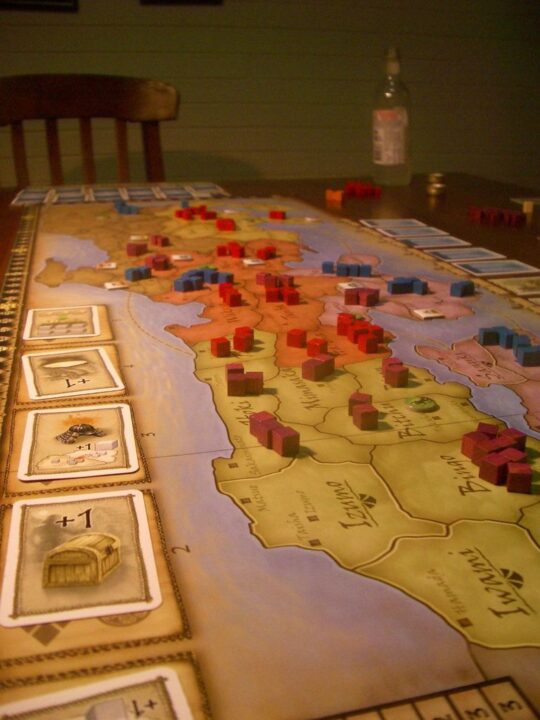
Shogun: Where Friends Become Frenemies
If you ever wanted to know which of your friends would sell you out for a small rice field, Shogun will give you answers. And probably a chart, if you’re playing with Dave. Player interaction in Shogun is basically the main course; you can’t win unless you watch your neighbors like hawks and guess their sneaky plans. It’s not just about conquering — it’s about predicting who will try to backstab you while pretending to be your best buddy.
The planning phase is a hotbed of suspicion. Every round, you secretly pick your actions, then spend the next ten minutes side-eyeing everyone across the table. Are they reinforcing their border with you? Did they just look a little too smug picking that province? I once caught my friend Jen humming ‘Let It Go’ as she burned my kingdom to the ground. Thanks, Jen.
Negotiation isn’t official in Shogun, but that doesn’t stop anyone from making wild promises and even wilder threats. Don’t believe a word. You learn fast who the master bluffers are. Engagement stays high because you never fully relax — unless you’ve been wiped off the map, in which case you fetch snacks and plot revenge.
Do I recommend Shogun for lovers of tense, strategic interaction? Absolutely. You’ll have laughs, you’ll have grudges, and you’ll think five moves ahead because your best friend probably is. Just be ready for some awkward texts the morning after game night!
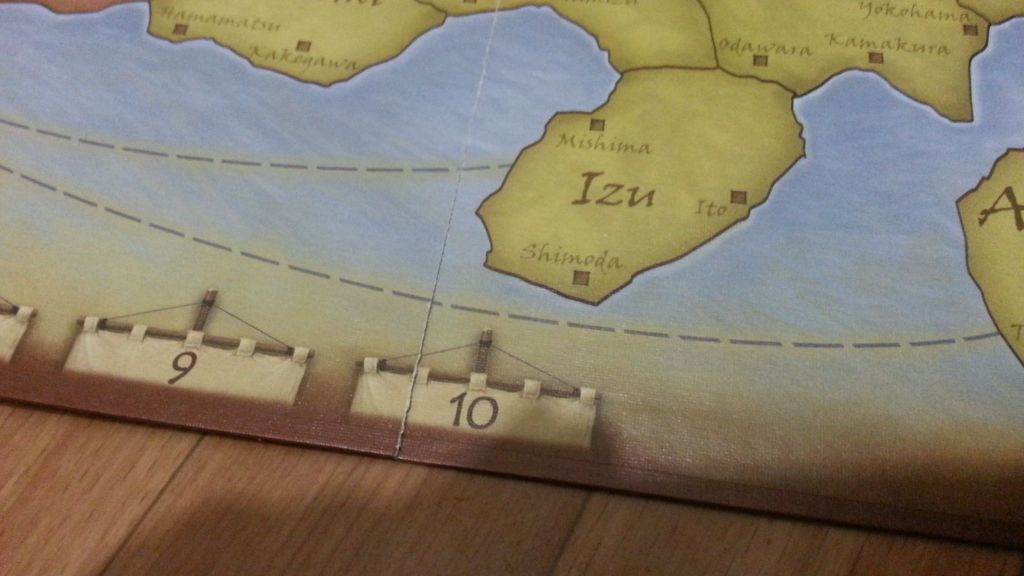
Conclusion
Alright, that’s a wrap on my Shogun review! This game has buckets of strategy, just the right amount of drama, and a board that always gets a “whoa” from my friends. I love planning my moves and seeing the chaos unfold in the cube tower. Sure, the rulebook could be a bit clearer and the card stock gave me flashbacks to those thin restaurant napkins, but none of that stopped my group from wanting to play again. If you enjoy outsmarting your pals more than trusting your dice-rolling luck, Shogun will keep your brain buzzing and your table buzzing with laughter. For folks who crave fair, thinky games with just a sprinkle of surprise, I can’t recommend it enough!

